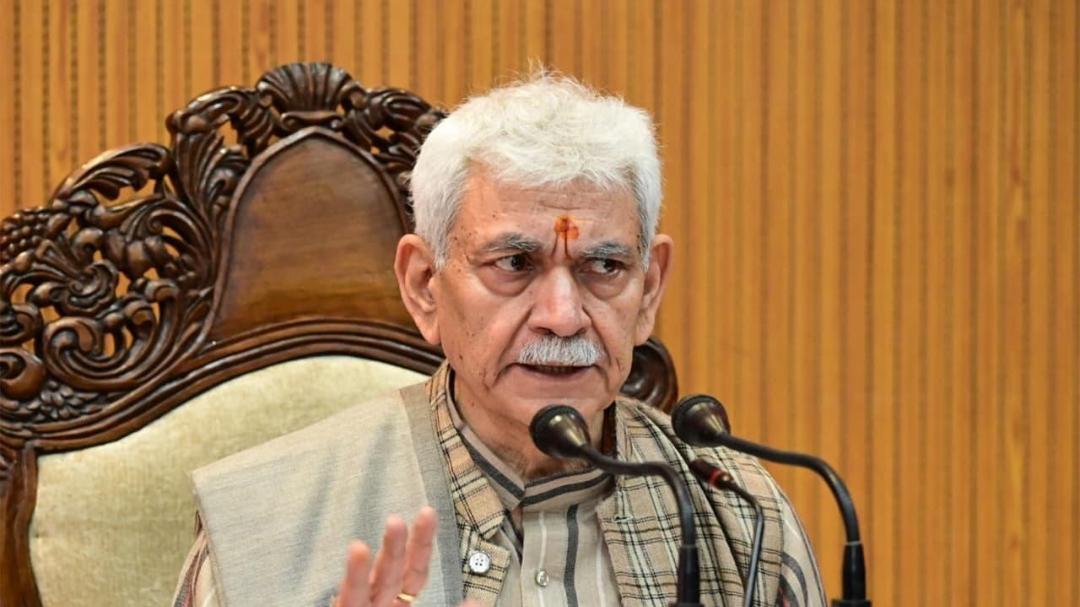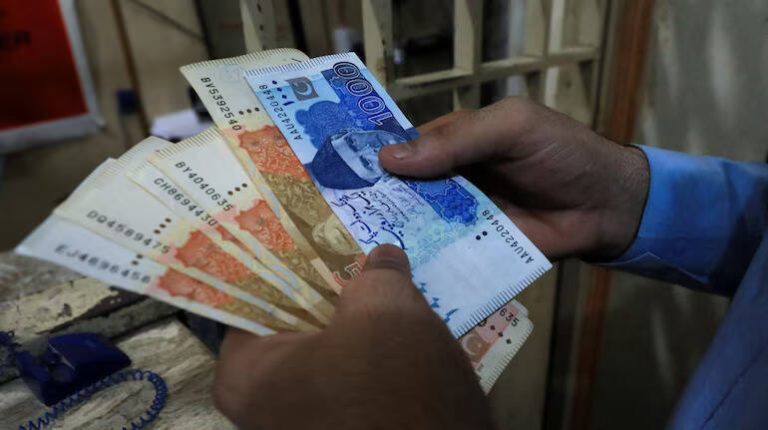
J&K L-G reviews Jammu’s security, vows zero tolerance to terror
In a significant move to strengthen the security apparatus in Jammu and Kashmir, Lieutenant Governor (L-G) Manoj Sinha chaired a high-level security meeting in Jammu. The meeting was convened to review the current security situation in the region, with a focus on the recent successes achieved by the police in dismantling a pan-India terror network. The L-G praised the efforts of the police and other security agencies, while also reaffirming the administration’s commitment to a 360-degree counter-terror approach.
During the meeting, the L-G directed officials to remain vigilant and intensify intelligence-led operations across the region. He emphasized the need for a proactive approach to counter-terrorism, stressing that there would be zero tolerance for terror financing, over ground workers (OGWs), and radicalization. The L-G’s message was clear: the administration would not compromise on the security of the region and its people.
The meeting was attended by top officials from the police, army, and other security agencies, who briefed the L-G on the current security situation in Jammu. The officials presented a comprehensive review of the region’s security landscape, highlighting the challenges and threats that need to be addressed. The L-G listened attentively to the presentations, seeking clarifications and offering guidance on the way forward.
The police’s recent success in dismantling a pan-India terror network was a major highlight of the meeting. The L-G praised the police for their meticulous planning and execution, which had led to the arrest of several key operatives and the disruption of the terror network. He noted that the police had demonstrated exceptional professionalism and bravery in the face of danger, and that their efforts had made a significant contribution to the security of the region.
The L-G’s emphasis on a 360-degree counter-terror approach is significant, as it reflects the administration’s commitment to a comprehensive and multi-faceted strategy to combat terrorism. This approach involves not just security agencies, but also other stakeholders, including the community, civil society, and the media. The idea is to create a collective effort to prevent radicalization, counter terrorist propaganda, and promote peace and stability in the region.
One of the key challenges that the administration faces is the issue of terror financing. Terrorist organizations rely on financing from various sources, including foreign sponsors, to carry out their activities. The L-G’s directive to security agencies to crack down on terror financing is, therefore, a crucial aspect of the counter-terror strategy. By disrupting the financial networks that support terrorism, the administration can significantly weaken the ability of terrorist organizations to operate in the region.
The L-G also stressed the need to tackle the issue of over ground workers (OGWs), who play a crucial role in supporting and facilitating terrorist activities. OGWs often provide logistical support, shelter, and other forms of assistance to terrorists, enabling them to carry out their operations. By identifying and apprehending OGWs, security agencies can disrupt the support networks that terrorists rely on, making it more difficult for them to operate in the region.
Radicalization is another critical issue that the administration needs to address. Terrorist organizations often use propaganda and ideology to radicalize young people, recruiting them to join their ranks. The L-G’s emphasis on preventing radicalization is, therefore, a vital aspect of the counter-terror strategy. By promoting counter-narratives, engaging with communities, and providing alternative opportunities for young people, the administration can reduce the appeal of terrorist ideology and prevent radicalization.
The L-G’s directive to security agencies to intensify intelligence-led operations is also significant. Intelligence plays a critical role in counter-terrorism, enabling security agencies to anticipate and prevent terrorist attacks. By gathering and analyzing intelligence, security agencies can identify potential threats, track terrorist movements, and disrupt their plans. The L-G’s emphasis on intelligence-led operations reflects the administration’s commitment to a proactive and preventive approach to counter-terrorism.
In conclusion, the L-G’s review of Jammu’s security situation and his vow to maintain zero tolerance for terror are significant developments in the region’s counter-terror efforts. The administration’s commitment to a 360-degree counter-terror approach, which involves a comprehensive and multi-faceted strategy to combat terrorism, is a positive step towards promoting peace and stability in the region. By disrupting terror financing, tackling OGWs, preventing radicalization, and intensifying intelligence-led operations, the administration can significantly reduce the threat of terrorism and ensure the security of the region and its people.






